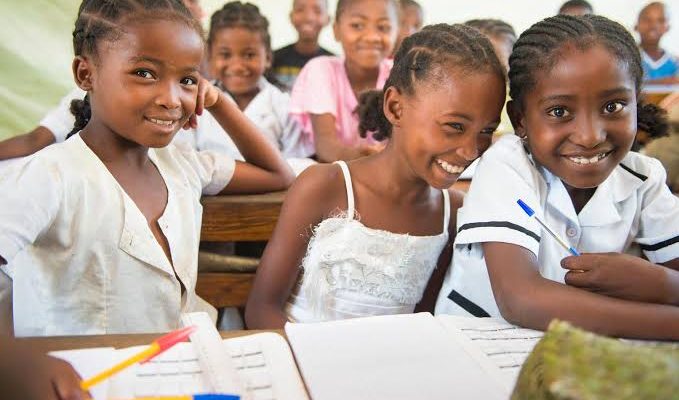Urgent Need To Protect Children From Economic Fallout From COVID-19
Oladimeji Daniels
Although the United Nations-approved Universal Children’s Day is not until November 20, Nigeria’s version of it, as is the annual tradition, is holding this Wednesday, May the 27th, 2020.
It would be the first celebration in years where schoolchildren will not be gathering at any stadium for march past and it is also the first in so many years that many children all over the world are forced, against their wish, to stay away from school if they must survive the onslaught of corona virus.
The World Children’s Day came into being in 1954 and its objective is to improve children’s welfare, guarantee their rights, as well as create awareness about problems facing children the world over.
The lack of accompanying funfare for this year’s children day will not be the only loss for Nigerian children this year. No doubt, corona virus has and is still bringing untold economic hardships to households in Nigeria. Certainly, there would be an increase in street hawking among children as poor households strive to survive the economic misfortunes foisted on them by COVID-19.
Another response to the economic hardships may be an increase in the number of child marriages consumated in Nigeria’s North. The World Health Organization pin-points child marriage as one of the causes of maternal mortality and reports abound about many of these girls ending up with vesico vaginal fistulla and left to rot away without care. The WHO also estimates that child marriage reduces the future earnings of girls by around 9 percent.
Unfortunately, this is the situation that we have always lived in, but desperation brought on by economic misfortunes from COVID-19 can and would worsen the situation.
This is why the state and federal governments must go beyond the annual ritual of May 27 Children’s Day to putting in place concrete and workable economic policies to relieve households.
The federal government has already kick-started this and at the state level, palliatives such as food items are being doled out by government and individuals. But government knows these palliatives would not cut it.
In days to come, the state governments themselves would face serious economic hurdles, but what this indicates is that this is the time to sincerely cut waste such as kickbacks on contracts, security votes, frivolous allowances and many other bottomless pits into which public funds are continuously funnelled.
States like Kaduna have already initiated paycut for both political appointees and civil servants. For the civil servants, this would only reduce the already inadequate family earnings, pushing families to turn to desperate measures to make up for their losses.
There is an urgent need to quickly turn to agriculture. State governments should roll out easily accessible and readily available grants for those willing to go into agriculture, especially farming. Land should also be cleared and made available by government.
Families should also realise that these are unique times and must jettison impulsive buying. They should also embrace farming, even if it is backyard gardening. The days of free money are coming to an end and nobody knows this better than government and employers of labour.
As we celebrate this year’s Children’s Day on Wednesday, we should realize that the wellbeing of these kids’ families is the same as their wellbeing and that the situation at hand would not be wished away by goodwill messages to these children on radio and TV.

